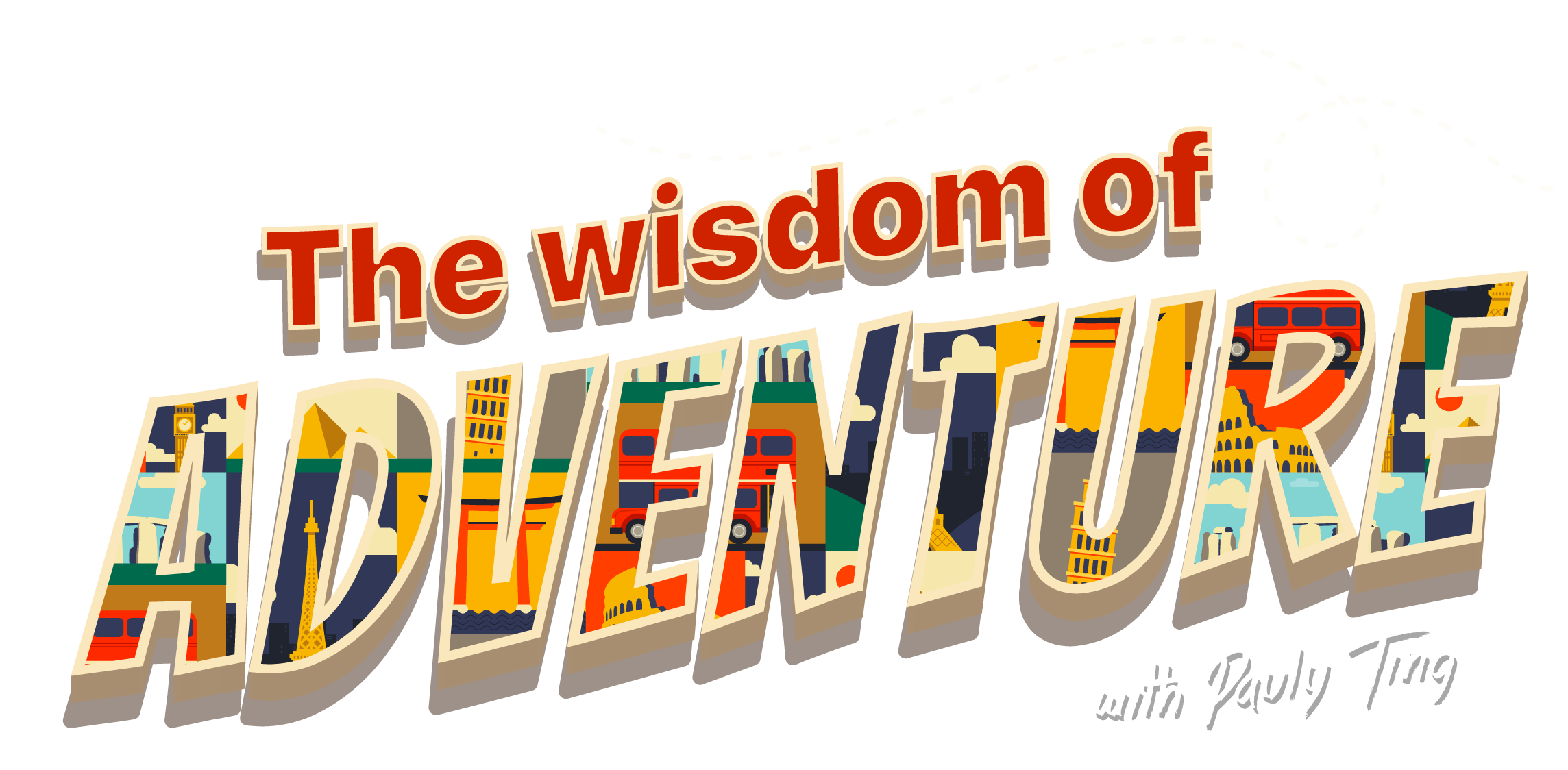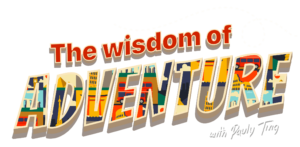The funny thing about grief is that it’s mostly in our heads. While we definitely experience the loss of someone or something in its true physical sense, the greatest pain often comes from our feelings of what we thought we lost (despite what was real), and what future we hoped to exist.
Coming home to Australia always triggers a lot of memories, emotions, and thoughts about who I am as a person. All the things that could have been, but aren’t. All the things that are, that I never imagined. All the things that were once certain, now precariously balanced. All the things that have changed, and all the things that have stayed the same.
In my teens, the world ahead held endless possibility because everything was in the future, and death was something that happened to old people. My twenties was about starting to swim around on my own and developing some confidence in my limited knowledge, often dipping into over-confidence.
In my early thirties now, I have had a few recent sequences in my life that have not only showed me more endless possibility, but also great pause and humility.
Despite my hunger and drive to do it all, I have accepted that I will barely scratch the surface of all that life can offer in my lifetime, and that things will be taken away even if I’m not ready.
While knowing the words to the effect of “life is short”, recent experiences have shone a complexly bright light on this somewhat simple concept. In my fortunate world of options, choices, and a capacity to realize my desires, there’s a bittersweet emotion having to choose based on a feeling or instinct in a butterfly-effect moment. The fear of getting it wrong is immense.
We’d all love more time to think, the chance to hoard and have it all, or to arrange things in a way that we can feel secure in a configuration. We are so conditioned to create an infallible plan to our life, and to execute it like a laundry list. Job titles, milestones, business plans. Security and certainty is our goal, despite that we didn’t even choose to be here in the first place. We believe that guarantees will make us happy, causing so many of us to be always comparing ourselves to what others have, and what we could have done instead.
Our high level of discontent is what keeps us growing, but it can also cripple us. Dissatisfaction inspires creation, invention, and allows us to expand, but it can also create the most treacherous emotion of all – regret.
Whether we act and fail, or fail to act, regret is always lurking. We either live with it or take it to our grave, and in our acute awareness of its presence, we all seek to avoid it. Regret is a dirty word because it reminds us that we aren’t good enough, and suggests that we chose to fuck it up.
With this narrative, we then tend to judge ourselves by our intentions and others by their actions, quick to label our regrets as character flaws, while becoming hyper-critical about the regrets of others.
The feeling of regret stems from the idea that we could have chosen differently, but didn’t. That we could have changed something, but whether ego, ignorance or fear got in the way, we chose something that we later wish was different. We oddly correlate hindsight as failure rather than a sign of growth. We try to insure against regret by creating process, formulas, models, and curriculum in order to craft a life of certainty. A foot-loose and fancy free existence, that apparently knows no pain or failure.
By and large, I don’t regret my life, because I’ve almost always acted out of what I knew best at the time. My Grandfather taught me that there isn’t a right or wrong decision, but the best decision I can make based on the information I have at the time. He framed decision making to me in a way that ensured my responsibility to a situation was to gather quality information rather than worry about it being subjectively ‘right or wrong.’
As a Supreme Court Judge, I took his advice with a great deal of respect, particularly as he was renowned for being a fair and well considered arbiter. Yet despite his advice, I still look back and feel pain and remorse for some decisions I’ve made, particularly when I consider how much more I know now, and how I might have chosen differently. Such is the joy of hindsight, for which we feel we can control.
However, I’m acutely aware that had it not happened exactly as it did, I would likely not have what I have today in both myself, and the world around me. Things that I deeply cherish. It’s a conflicting feeling because my constant willingness to revisit and embrace my regrets is what helps me to be more conscious and to make well-considered decisions, yet I still feel the weight of responsibility for the choices I’ve made. I have much to master in this area.
I didn’t plan to have my businesses fail. I didn’t plan to lose love. I didn’t plan to hurt people I cared about because of my own limitations at the time. I didn’t plan to be confused, afraid, or to find myself standing on the Golden Gate Bridge one late afternoon feeling alone and unable to see a way out.
But there I was.
It wasn’t a singular moment that brought me there, but rather a series of small decisions, driven by all that I knew.
The thing about life is that it’s not created by a single sweeping blow, but rather a billion tiny strokes; the power of a persistent single drop of water. Our characters are similar. While we may die in one final fatal event, it’s often due to a series of small decisions that have lead us to our final place. Some decisions we can choose, others are chosen for us. It’s why we are told to choose our friends and environment wisely.
Every major decision I’ve made has been emotionally tumultuous because with every choice to embrace a new way of life, I’ve inadvertently had to let another one go.
I was sold the dream of having it all, only to quickly learn that it was simply impossible. These perpetual voids created grief, and thus the space for regret.
It took me many years to move through the grief and regret of my failed relationships and businesses which I sooner felt shame for, rather than wore as a badge of honour. I also had no shortage of people to remind me of my failures, and to reinforce that my self-loathing was an appropriate punishment.
What pulled me back from edge of the bridge wasn’t the beauty of life, how my family would feel, or worrying about what people might say. It wasn’t that I found love for myself, or that I even forgave myself for my past. It was because I realised that I didn’t have enough information to make a decision like that, and so I owed it to myself. Ironically, what I feared most was regretting my decision half-way down.
Much time has passed since then, and I try hard to lean into my fears and regrets not because I cannot let the past go, but to fully understand how to make conscious decisions that I feel confident about. I strive to live a life that doesn’t have regret because of artificial certainty, but because I didn’t leave a stone unturned in my effort to be me.
It’s why I go into this world now and tirelessly give to others so that they too may find the courage to gather more information about their regrets, as opposed to being blindly driven by them.
And so when I come home, I’m quickly re-aquainted with my past, my regrets, and all that is fleeting but seemed once as absolutely certain. It reminds me that I have agency to choose, especially and even when the cost is final, and the path is unknown.
To all of those who have patiently loved me, stuck by me, and to those who tried but gave up because we couldn’t keep the connection. To those who have helped me by either giving me a chance, or rejecting me. To everyone who has forgiven me, trusted me, and given a part of themselves knowing nothing but uncertainty, I thank you. I wouldn’t be me without you, and if the decisions I’ve made inadvertently led me to you and from whom I learned so much, then I cannot regret that.

